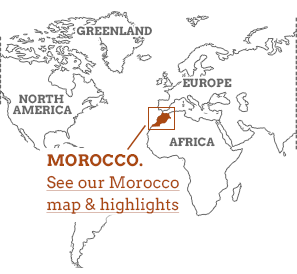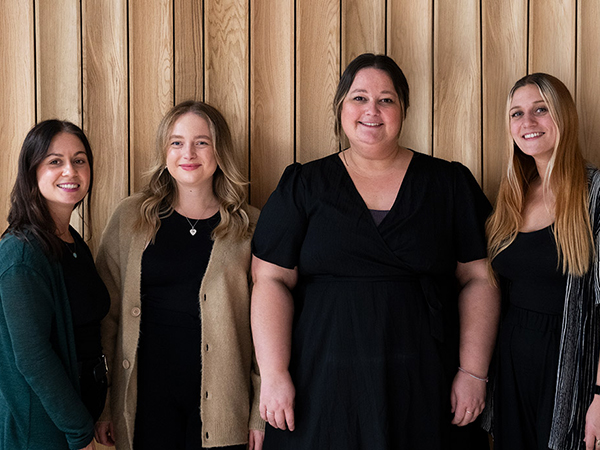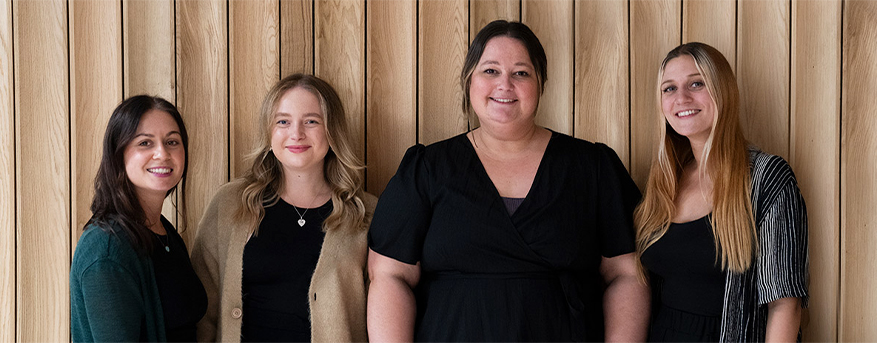Walking in Morocco travel guide

Anyone who has swerved their way through a sweltering Marrakech souk might not guess at the peaceful walking trails and cool, unspoiled scenery that lie beyond Morocco’s capital. But it’s all waiting to be discovered in the Atlas Mountains by anyone with walking boots and a few days to spare. The High Atlas is less than 70km from Marrakech. Once here, a network of trails threads through traditional villages and lush valleys, while Mount Toubkal (Jebel Toubkal in Arabic), the highest peak in North Africa, beckons serious climbers.


Walking in Morocco means going up – into the beautiful Atlas Mountains, away from the sizzling lowlands, amongst the Berber people.![]()

The Anti-Atlas lies further south and offers empty trails with gentler gradients, plus the chance to hike up Jebel Aklim, for spectacular views to the big peaks in the north. One thing all ranges have in common is the Berber people. Warm, trusting and long practiced in sustainable living in these mighty mountains, they guide you into their world with expertise and warmth.
Read on to discover more in our walking in Morocco travel guide.
Go walking in Morocco if...
Don't go walking in Morocco if...
Morocco holidays, Atlas Panorama
Rewarding trekking experiences
From
£1079 to £1449
8 days
inc UK flights
Luxury trekking holiday in the Atlas Mountains
Stay at the Kasbah du Toubkal and trek in style
From
€1138
6 days
ex flights
Atlas Mountains trekking and Marrakech
Stay at Kasbah du Toubkal to trek in style then in Marrakech
From
€1450 to €1535
8 days
ex flights
Climb Mount Toubkal walking holiday
Explore the High Atlas Mountains of Morocco
From
£395 to £645
7 days
ex flights
Climb Mount Toubkal in style
Stay at the Kasbah du Toubkal and trek in style
From
€1138
6 days
ex flights
Mount Toubkal winter trek
Discover the beauty of Mount Toubkal in winter on this trek
From
£529 to £765
7 days
ex flights
Contact Us

Call us for a chat about our holidays. We are happy to discuss your holiday and help in any way we can. No bots, queues or awful hold music.
01273 823 700
Call us until 6pm
Calling from outside the UK

What does walking in Morocco entail?
Guided or self guided?
Simple answer – guided. It’s not easy to walk in Morocco’s mountains independently and tackling mighty Toubkal should never be attempted without an experienced guide. Throughout the Atlas Mountains, tracks are rough and often hard to follow, plus there’s no common language, so asking for directions isn’t straightforward. Beyond the safety issues, guided walking is more comfortable and enjoyable. It may include mules to carry your kit, so you can hike with just a daypack, plus all the camping gear, food and water needed for the hike. Experience muleteers lead the mules, while your guide brings the landscape to life with expert knowledge and helps you interact with local people. Book an organised guided trek in advance which uses experienced guides, and avoid using the ‘faux’ guides that hang around in trekking hotspots such as Imlil. You can choose between joining a small group guided trek or going tailor made, which means a personal guide will design each day’s walk with you – or an entire trek – according to what suits you, and you’re able to go at your own pace.
Centre based or nomadic?
Both centre based and point to point treks are possible in Morocco. The High Atlas is the best place for centre based walking, and staying in a remote village like Tijhza gives you the chance to observe everyday mountain life, too. Imlil is the main village in the High Atlas and most ascent routes to Toubkal begin here, but you can also enjoy leisurely walks and day hikes from here, through farmland valleys and lush foothills, with the striking snow capped peaks rising above. On centre based holidays, walks are optional, so you can choose to take a day relaxing in your riad rather than hiking.
How tough is walking in Morocco?
It really depends where you go. There are plenty of gorgeous day hikes in the lower reaches of the High Atlas, so you can base yourself somewhere comfortable like the Kasbah du Toubkal in Imlil and still set out each day to discover dramatic scenery and traditional Berber villages. Point to point treks take you deeper into the landscape than any day hike can, often trekking for between 8km and 22km a day. Mules may be used to carry supplies and your backpack, so you’ll only have to walk with a daypack. The entire Atlas Mountains region is generally quite undeveloped, so you can expect a mix of well graded paths, but also some rough and stony trails, with the odd steep ascent and descent.
Serious trekkers with some climbing experience are also catered for in Morocco. Summiting Jebel Toubkal, the highest peak in North Africa, is challenging and needs to be tackled with a guide. In winter, crampons and ice picks are essential. The altitude isn’t on a Himalayan scale – Toubkal reaches 4,167m – but you can’t rule out the possibility of it causing some Acute Mountain Sickness symptoms, such as shortness of breath or nausea.
Walking in the Anti-Atlas is rarely technically difficult, but some walking experience is useful, as the trails can be very rough and stony. This is a sparsely populated area and many local people have left the region in search of work in the cities, so often paths have been neglected and are partially abandoned. Expect uneven and hard to follow trails – a solid reason for walking with a guide here.
How long do I need?
Both the High Atlas and the Anti-Atlas are close to major cities – Marrakech and Agadir respectively – and in turn, these can be reached on short flights from Europe. It means you can fly in one day and hit the trail the next. Short breaks to summit Jebel Toubkal are available, involving three days of tough walking with time to relax in Marrakech, too. On walking holidays that follow a point to point route, a weeklong trip might include five days of trekking, while a fortnight’s holiday allows time for longer and more challenging treks that last up to 12 days, with the chance to summit several peaks over 4,000m.
Hut or high end?
There is some characterful riad accommodation in Morocco’s walking regions, particularly in the High Atlas. Here, the wonderfully welcoming and authentic Kasbah du Toubkal provides legendary Berber hospitality, while you’ll find small riads in the little villages that pepper the lower altitudes. On the whole, though, rural accommodation is simpler than in Morocco’s cities, although the warmth of the welcome will make up for basic facilities. Most point to point treks rely on a mix of wild camping, Berber houses, simple gites and mountain refuges, where facilities are limited and rooms shared. You may need to bring your own sleeping bag, too.
In the Anti-Atlas, where there is very little development, you will often be wild camping, since few lodges exist. In fact, not much of anything exists here, which is why it’s important to join a guided trek with the food and water you’ll need included and carried for you.























